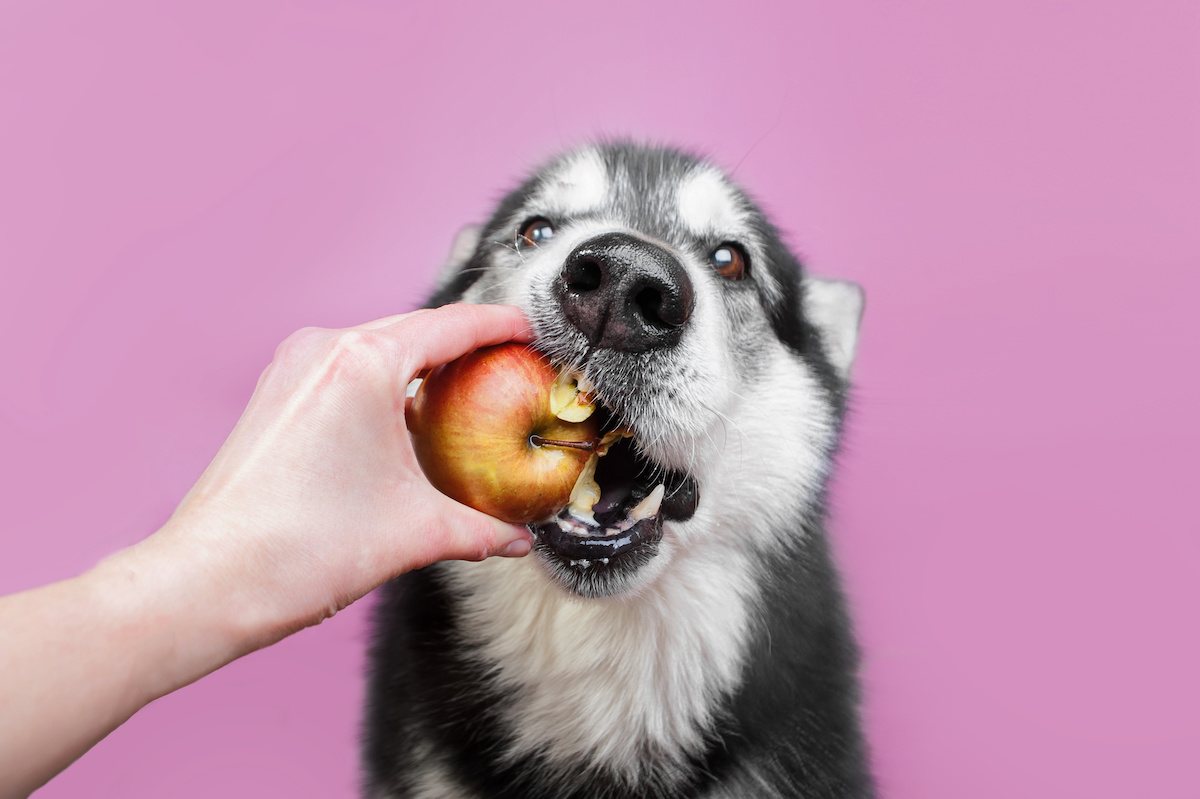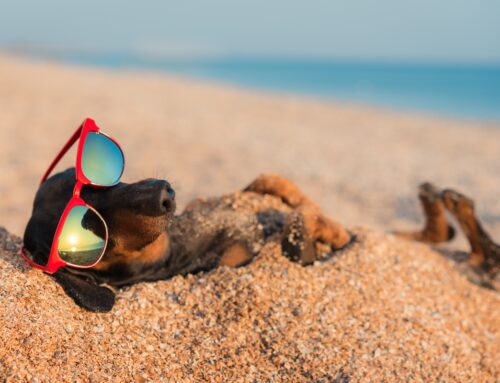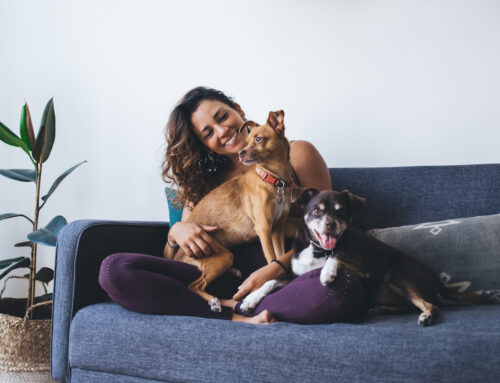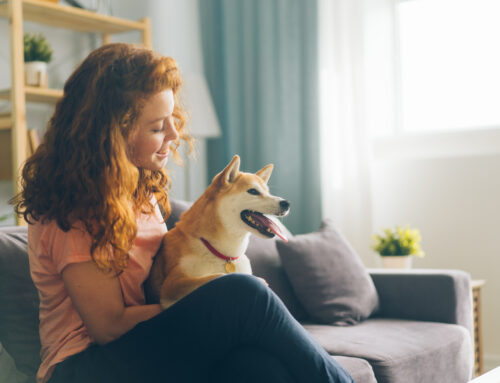As pet owners, we often find ourselves sharing our food with our furry companions. Whether it’s a sneaky snack under the table or a special treat during mealtime, it’s important to know which human foods are safe for our dogs to eat.
While many foods are perfectly fine for dogs to enjoy, others can be harmful and even toxic to their health.
In this blog, we’ll explore some of the safest human foods for your dog and some of the harmful foods. Ideally, you’ll leave with all of the information you need to make informed decisions about what to feed your beloved pets.
Understanding Nutrition For Your Dog
Understanding your dog’s nutrition is crucial for providing your furry friend with a balanced and healthy diet. Dogs have specific nutritional needs that differ from humans, and meeting these requirements is essential for their overall health and well-being. A well-balanced diet for dogs typically includes a combination of:
- Protein
- Carbohydrates
- Fats
- Vitamins
- Minerals
Protein is a critical component of a dog’s diet, as it provides essential amino acids necessary for muscle growth, repair, and overall body function. High-quality animal-based proteins, such as those found in lean meats like chicken, turkey, beef, and fish, are optimal for meeting your dog’s protein needs.
Carbohydrates are another important source of energy for dogs, providing them with the fuel they need for daily activities. However, not all carbohydrates are created equal, and dogs primarily require complex carbohydrates, such as whole grains like brown rice, oats, and barley, as well as vegetables like sweet potatoes, peas, and carrots.
Fats are essential for dogs’ overall health, providing energy, supporting cell function, and aiding in the absorption of fat-soluble vitamins. Healthy fats, such as those found in sources like salmon oil, flaxseed oil, and chicken fat, are beneficial for your dog’s skin, coat, and immune system.
Vitamins and minerals play crucial roles in maintaining various bodily functions and supporting overall health. While dogs can obtain many essential vitamins and minerals from a balanced diet, certain supplements may be necessary to ensure they’re meeting their nutritional requirements, especially if they have specific health concerns or dietary restrictions.
Understanding your dog’s unique nutritional needs and tailoring their diet accordingly is essential for promoting their health and longevity. Factors such as age, breed, size, activity level, and any underlying health conditions should be taken into consideration when selecting the appropriate diet for your dog. Consulting with your veterinarian can help you develop a customized nutrition plan that meets your dog’s individual needs and ensures they thrive throughout their life.
Do your research or reach out to our team at the Animal Care Center to determine the best and safest diet for your furry friends!
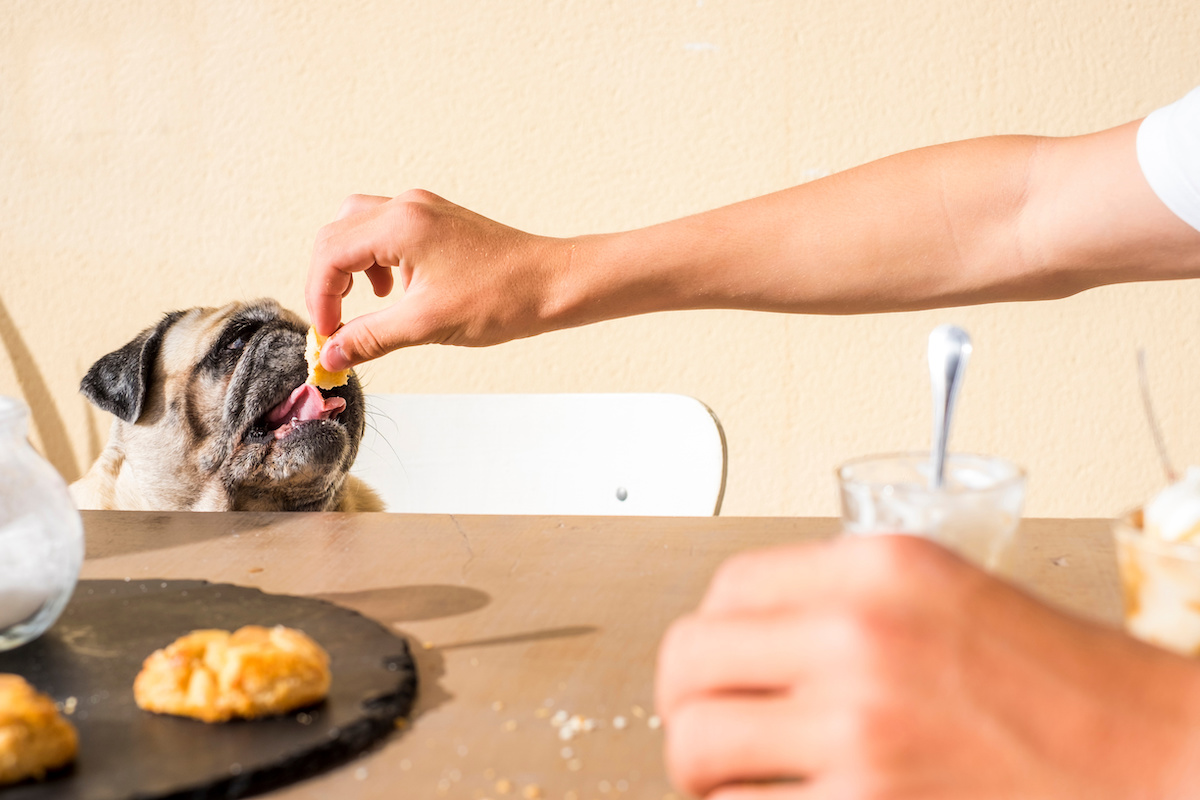
Safe Human Foods for Dogs
- Lean Meats: Cooked lean meats such as chicken, turkey, and beef are excellent sources of protein for dogs. Be sure to remove any bones and excess fat before feeding them to your pet.
- Fruits: Many fruits are safe for dogs and can provide essential vitamins and antioxidants. Some dog-friendly fruits include apples (without seeds), bananas, blueberries, strawberries, and watermelon (without seeds or rind).
- Vegetables: Vegetables are a great source of fiber and nutrients for dogs. Safe options include carrots, green beans, peas, pumpkin, sweet potatoes, and spinach.
- Grains: While dogs don’t require grains in their diet, small amounts of cooked grains such as rice, oats, and quinoa can be safely incorporated into their meals.
- Dairy: Some dogs can tolerate small amounts of plain, unsweetened dairy products such as yogurt and cheese. However, lactose intolerance is common in dogs, so monitor your pet for any signs of digestive upset.
- Eggs: Cooked eggs are an excellent source of protein and can be safely fed to dogs. Be sure to cook eggs thoroughly to avoid the risk of salmonella contamination.
- Peanut Butter: Peanut butter is a favorite treat for many dogs and can be a good source of protein and healthy fats. Opt for unsalted, unsweetened peanut butter and avoid varieties containing xylitol, a sweetener that is toxic to dogs.
Foods to Avoid Giving Your Dogs
- Chocolate: Chocolate contains theobromine and caffeine, which are toxic to dogs and can cause symptoms ranging from vomiting and diarrhea to seizures and even death. Keep chocolate out of your dog’s reach at all times.
- Grapes and Raisins: Grapes and raisins can cause kidney failure in dogs, even in small amounts. Avoid feeding grapes, raisins, and foods containing them to your dog.
- Onions and Garlic: Onions and garlic contain compounds that can damage a dog’s red blood cells, leading to anemia. Avoid feeding foods seasoned with onions, garlic, or onion powder to your dog.
- Avocado: Avocado contains a substance called persin, which can be toxic to dogs in large amounts. Avoid feeding avocado flesh, pits, and skin to your pet.
- Xylitol: Xylitol is a sugar substitute found in many sugar-free gum, candies, and baked goods. It can cause a rapid and severe drop in blood sugar levels in dogs, leading to seizures and liver failure. Check labels carefully and avoid feeding xylitol-containing products to your dog.
- Alcohol: Alcohol is extremely toxic to dogs and can cause vomiting, diarrhea, difficulty breathing, tremors, coma, and death. Keep alcoholic beverages out of your dog’s reach at all times.
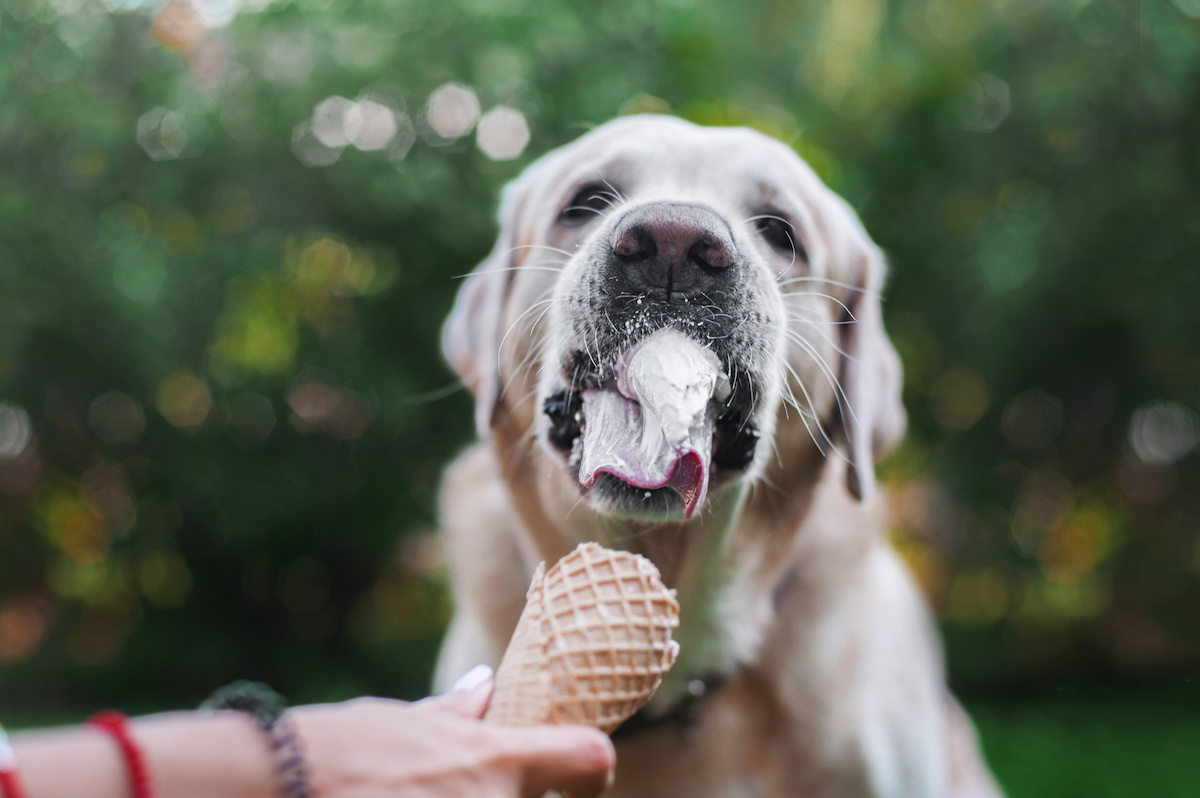
Extra Tips for Feeding Human Foods For Dogs
Feeding dogs human food can be a bit of a minefield if you’re not sure what’s safe for them to eat. However, with some knowledge and careful consideration, you can incorporate certain human foods into your dog’s diet safely. Here are some tips to keep in mind:
Consult with Your Veterinarian at Animal Care Center
Before introducing any new human foods into your dog’s diet, it’s essential to consult with your veterinarian. They can provide personalized advice based on your dog’s breed, age, health status, and dietary needs.
Stick to Dog-Safe Foods
While some human foods are safe for dogs, others can be toxic and potentially harmful. Stick to dog-safe foods like lean meats (cooked thoroughly and without seasoning), fruits such as apples and blueberries (seeds and pits removed), and vegetables like carrots and green beans.
Avoid Harmful Foods
Certain human foods are toxic to dogs and should be avoided at all costs. These include chocolate, grapes, raisins, onions, garlic, avocado, alcohol, caffeine, and foods containing xylitol (a sugar substitute often found in gum and sugar-free products).
Watch for Allergic Reactions
Just like humans, dogs can have food allergies and sensitivities. When introducing new human foods into your dog’s diet, monitor them closely for any signs of allergic reactions, such as:
- Itching
- Vomiting
- Diarrhea
- Changes in behavior
Moderation is Key
Even dog-safe human foods should be given to your furry friend in moderation. Too much of any new food can upset your dog’s stomach and lead to digestive issues. Start with small portions and gradually increase as tolerated.
Balance and Variety
While it’s okay to give your dog occasional treats of human food, it’s essential to ensure that their overall diet is balanced and nutritionally complete. Commercial dog food is formulated to meet your dog’s dietary needs, so human food should only supplement their diet, not replace it entirely.
Avoid Table Scraps
Feeding your dog table scraps can encourage begging behavior and lead to obesity and digestive problems. Instead, offer human foods as occasional treats or additions to their regular meals in a controlled manner.
Be Mindful of Calories
Human foods, especially high-fat and high-calorie options, can contribute to weight gain in dogs if given excessively. Be mindful of your dog’s calorie intake and adjust their regular meals accordingly to accommodate any extra calories from human food treats.
Practice Safe Food Handling
When preparing and serving human foods to your dog, ensure that they are free from contaminants and cooked thoroughly to prevent foodborne illnesses. Avoid feeding your dog foods that are:
- Spoiled
- Moldy
- Past their expiration date
Monitor Your Dog’s Weigh
Regularly monitor your dog’s weight and body condition to ensure that they are maintaining a healthy weight. If you notice any significant changes, consult with your veterinarian to adjust their diet accordingly.
Know Which Human Foods For Dogs Are Safe
While sharing food with our canine companions can be a fun and enjoyable experience, it’s essential to prioritize their health and safety above all else. By understanding which human foods for dogs are safe to eat and which ones to avoid, you can ensure that your furry friends stay happy, healthy, and well-nourished for years to come.
Remember to always consult with the team at Animal Care Center if you have any questions or concerns about your dog’s diet or nutritional needs. With proper care and attention, you can provide your dog with a diet that supports their overall health and longevity.

